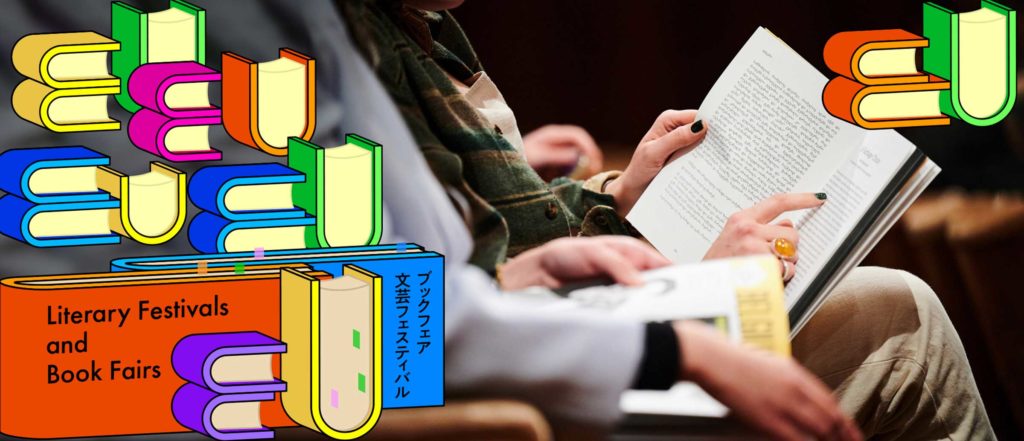Europe’s vast range of literary events includes some of the oldest and most venerated in the world. Use the search menu below to find events across the continent.

Every February, the International Exhibition Centre Ķīpsala in Riga turns into an inspiring book town, where writers, translators, publishers, and readers meet. For three days, Ķīpsala hosts the most significant book fair of the year, the International Book and Publishers Exhibition Latvian Book Fair, where a diverse range of books by Latvian and foreign publishing houses is on display.
The international poetry festival Page Break, held annually in Jelgava in May, gathers internationally known poets. Through poetry walks and the symbiosis of music and poetry, the festival encourages the audience to take a closer look at poetry and its potential. As part of the festival, an anthology of the festival’s poetry is published with the works of all authors and their translations into Latvian.
The annual international literature festival Prozas lasījumi, focusing on prose, takes place every December in Riga. The readings started in 1977 in honor of Latvian writer Andrejs Upits’ 100th anniversary. Several strong traditions have been established, like the Baltic readings, an event where Latvian literature meets Estonian and Lithuanian literature. Furthermore, every year young readers gather at interactive children’s literature readings.
Punctum Festival is a program of literary events in August organized by the Punctum literary magazine. The festival has been running since 2017, bringing together representatives of different cultural disciplines in interdisciplinary events. The festival features poetry readings, prose readings, workshops, lectures on bibliotherapy, and discussions on inclusive literature.
The first Poetry Days were celebrated in 1965 to honor the 100th anniversary of the birth of the Latvian poet Jānis Rainis. Poetry Days events occur not only in Riga, but across all of Latvia. This celebration typically lasts about 21 days in September and includes poetry readings as well as opportunities to meet the poets themselves.